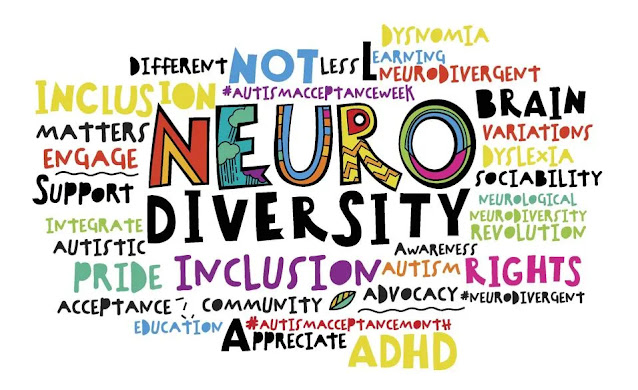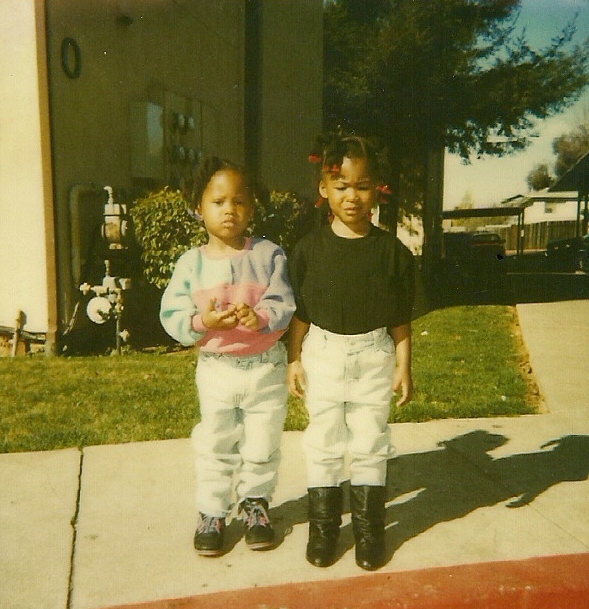ADHD, Autism, and the Struggle of Adult Diagnosis: Why the System Isn’t Built for Us
If you clicked on this, chances are you’re wondering, Do I have ADHD? Am I on the spectrum? Maybe you’ve spent years feeling like something wasn’t quite clicking, but every time you brought it up, people waved it off with a "You’re just overthinking it." (Ah yes, the classic gaslighting special.)
Before we dive in, let me just say—if you were hoping this blog would tell you whether vaccines caused neurodivergence, this is not the post for you. (And for the record, no. Just… no.)
Now, let's get into it.
ADHD & ASD: What Are We Actually Talking About?
Both Autism Spectrum Disorder (ASD) and Attention Deficit Hyperactivity Disorder (ADHD) are neurodevelopmental conditions, meaning they’ve been with you since childhood. They just might not have been noticed—or, more likely, were misunderstood.
ADHD: DSM-5 Criteria
ADHD comes in three flavors:
Inattentive Type (a.k.a. "space cadet")
Hyperactive-Impulsive Type (a.k.a. "can’t sit still")
Combined Type (a.k.a. "all of the above")
For adults, symptoms must have been present before age 12, interfere with daily life, and not be better explained by another disorder. Some hallmarks of ADHD include:
Trouble focusing on tasks (but hyperfocus on very specific things—hello, 6-hour Wikipedia deep dives).
Forgetfulness (where did you put your keys? Who knows? Not you!).
Impulsivity (making big decisions in the span of 30 seconds and regretting them immediately).
Restlessness (if your leg isn’t bouncing, are you even awake?).
Autism Spectrum Disorder (ASD): DSM-5 Criteria
ASD is categorized by two main areas:
Challenges in social communication and interaction:
Difficulty with nonverbal cues (why do people say one thing but mean another?!).
Struggles with small talk (can we skip to the deep philosophical discussions, please?).
Trouble understanding social norms (not getting the "rules" of group interactions).
Restricted, repetitive behaviors, interests, or activities:
Stimming (rocking, tapping, repeating phrases—often mistaken for "fidgeting").
Deep, intense interests in specific topics (You mean everyone doesn’t hyperfixate on 18th-century fashion?).
Sensory sensitivities (loud noises = immediate shutdown).
Oh, and if you're wondering about Asperger's? That term was thrown out in 2013 because the man behind it, Hans Asperger, was a raging eugenicist who worked with the Nazis. So yeah. We don’t use that anymore. If you know me, you'd know it is very difficult for me to not go on a looooong tangent about this man and why we even allowed him to be named in the DSM in the first place!
The Problem with Adult Diagnosis
Here’s the fun part (more like deeply frustrating and rage-inducing part). Getting diagnosed as an adult is like trying to get a VIP pass to a sold-out concert, except the bouncer at the door (aka the mental health system) wasn’t designed to recognize you.
Why? Because the diagnostic criteria is based on young White boys. Society also has a habit of slapping an ADHD label on Black boys so they can be overmedicated and disciplined. For all boys with a neurodivergent label they were being shipped off to special education classes, because their behaviors disrupted the traditional classroom setting. Now we have moved towards an inclusive classroom model.But girls? People of color? Neurodivergent kids living in poverty? Ignored! Our struggles weren’t seen as a medical issue—they were just "bad behavior."
Girls who struggled to focus? They just need to try harder.
Girls who were overwhelmed? They’re just sensitive.
Black and brown kids struggling in school? Must be a discipline problem.
And if you did get a diagnosis? You were often treated as a problem to be managed, not a person to be understood.
Why So Many Women & People of Color Get Misdiagnosed
By the time we reach adulthood, we’ve become professional maskers.Learned to mimic others’ social behaviors so well that people assume we’re neurotypical.
Found ways to suppress stimming (or we channel it into "acceptable" behaviors like nail-biting).
- Developed workarounds for executive dysfunction (sticky notes, phone reminders, five planners that we still forget to check).
And if we struggle? It’s often mistaken for something else.
Self-harm? Automatically labeled as Borderline Personality Disorder (BPD).
Emotional dysregulation? Maybe Bipolar Disorder instead of ADHD.
Social struggles? Nope, it’s not ASD—it’s just "anxiety."
For every 4 boys diagnosed with ASD, 4 girls get diagnosed with BPD instead (diagnosed as an adult).
For every 4 boys diagnosed with ADHD, girls often get diagnosed with anxiety or depression instead.
Is this because boys and girls are biologically that different? Nope. It’s societal bias.
This is why it’s important to ask for a differential diagnosis—meaning, your provider should rule out all possibilities before jumping to conclusions.
Barriers to Getting Diagnosed as an Adult
Even if you find the right provider, getting a diagnosis as an adult is hard. Some reasons why:Your other mental health symptoms complicate the picture. If you're actively dealing with depression, anxiety, or PTSD, it can muddy the assessment.
You might not remember childhood symptoms. If you dissociated through your entire childhood (relatable), it’s hard to report early signs.
Your family isn’t safe to ask. Many assessments rely on reports from parents or caregivers. But what if your parents were abusive? What if they don’t believe in mental health?
Testing centers have ridiculous waitlists. Some are booked out a year in advance.
So… What Now?
If you’re thinking, Okay, great. So I probably have ADHD or ASD, but now what?—I’ve got you.At Mood & Mind Therapy, I offer diagnostic assessments and differential diagnosis screenings to help you figure out whether you’ve been misdiagnosed or missed altogether.Some providers diagnose just to validate your feelings (you paid for the test, so here’s your label!). That’s not me. I believe in accurate results. You deserve a full, detailed report that actually reflects what’s going on.And if you do get diagnosed? You might feel relief—but also grief.
What if my medical providers start treating me differently?
What if my relationships change?
What if people don’t believe me because I "seem normal"?
These feelings are valid. But understanding your brain is the first step to finding what truly works for you.
If you’re ready to explore this, let’s talk. I see you, I believe you, and I want to help.









Comments
Post a Comment